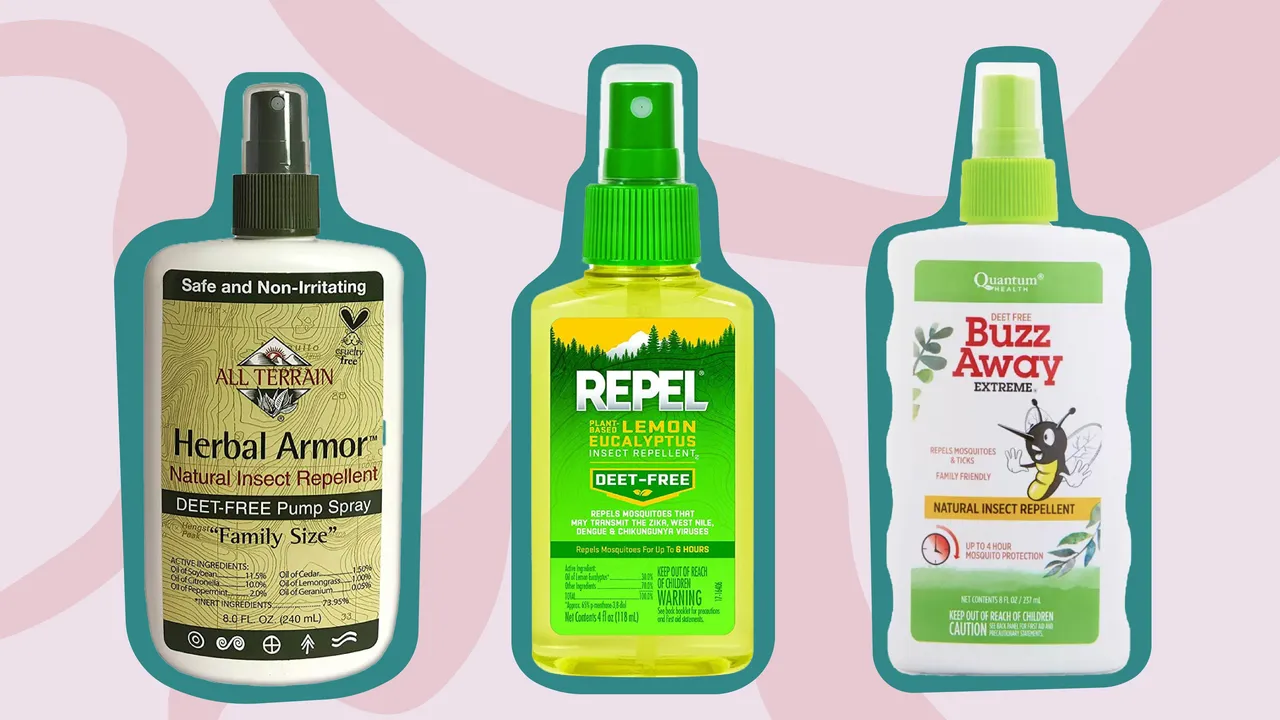Natural Insect Repellents Travel Guide
A guide to natural insect repellents for sustainable travel. Protect yourself from insects without using harmful chemicals. Choose natural repellents for a responsible and eco-friendly trip.

Why Choose Natural Insect Repellents for Eco-Friendly Travel Insect Repellents
Let's face it, bugs can ruin a trip. But slathering on chemical-laden insect repellent isn't exactly eco-friendly. Traditional insect repellents often contain DEET, which, while effective, has raised concerns about its impact on the environment and potential health effects. Luckily, there's a growing market of natural insect repellents that are gentler on the planet and potentially on your skin too. This guide explores why switching to natural options is a smart move for sustainable travelers.
Understanding the Downsides of Conventional Insect Repellents DEET Concerns
DEET (N,N-Diethyl-meta-toluamide) is a widely used and effective insect repellent. However, it's a synthetic chemical that can persist in the environment and has been linked to some health concerns, especially with prolonged use or high concentrations. It can also damage plastics and synthetic fabrics. Other chemicals found in conventional repellents, like permethrin, are also under scrutiny for their environmental impact. Natural alternatives offer a way to avoid these concerns while still keeping the bugs at bay.
Benefits of Natural Insect Repellents Natural Alternatives Advantages
Natural insect repellents offer several advantages:
- Environmentally Friendly: They're typically made from plant-based ingredients that are biodegradable and less harmful to ecosystems.
- Potentially Gentler on Skin: Many people find natural repellents less irritating than DEET-based products.
- Pleasant Scents: Often, natural repellents have a more pleasant aroma than chemical versions, thanks to the essential oils they contain.
- Sustainable Sourcing: Many natural repellent brands prioritize sustainable sourcing and ethical production practices.
Key Ingredients in Natural Insect Repellents Essential Oils Effectiveness
Several natural ingredients have proven effective in repelling insects:
- Citronella Oil: One of the most well-known natural repellents, citronella is effective against mosquitoes.
- Lemon Eucalyptus Oil: Studies have shown that lemon eucalyptus oil can be as effective as DEET in repelling mosquitoes.
- Peppermint Oil: Peppermint oil can repel mosquitoes, ants, and other insects.
- Cedarwood Oil: Cedarwood oil is effective against mosquitoes, moths, and other pests.
- Soybean Oil: Soybean oil is a natural moisturizer that also has some repellent properties.
- Geranium Oil: Geranium oil, particularly rose geranium, is effective against mosquitoes and ticks.
Top Natural Insect Repellent Products Reviewed Product Recommendations
Here are some recommended natural insect repellent products, considering their effectiveness, ingredients, scent, and price:
Badger Balm Anti-Bug Balm Product Review Badger Balm
Description: Badger Balm Anti-Bug Balm is a popular choice known for its organic ingredients and pleasant scent. It contains citronella, cedarwood, lemongrass, and rosemary oils.
Use Cases: Ideal for outdoor activities like hiking, camping, and gardening. It's also safe for children.
Pros: Organic, DEET-free, pleasant scent, moisturizing.
Cons: Needs frequent reapplication.
Price: Approximately $10-$15 per tin.
Repel Plant-Based Lemon Eucalyptus Insect Repellent Repel Review
Description: Repel Plant-Based Lemon Eucalyptus Insect Repellent is a DEET-free option that uses lemon eucalyptus oil as its active ingredient.
Use Cases: Effective against mosquitoes for up to six hours. Suitable for travel and outdoor activities.
Pros: DEET-free, long-lasting protection, effective against mosquitoes.
Cons: Strong lemon eucalyptus scent, may not be suitable for sensitive skin.
Price: Approximately $8-$12 per bottle.
Murphy's Naturals Mosquito Repellent Balm Sticks Murphy's Naturals
Description: Murphy's Naturals Mosquito Repellent Balm Sticks offers a convenient and mess-free application. It's made with citronella, rosemary, peppermint, lemongrass, and cedarwood oils.
Use Cases: Easy to apply on the go, perfect for travel and outdoor adventures.
Pros: DEET-free, convenient application, pleasant scent.
Cons: May need frequent reapplication.
Price: Approximately $12-$18 per stick.
Cutter Natural Insect Repellent Spray Cutter Review
Description: Cutter Natural Insect Repellent Spray uses a blend of essential oils to repel mosquitoes and other insects.
Use Cases: Suitable for spraying on clothing and exposed skin. Ideal for backyard barbecues and outdoor events.
Pros: DEET-free, effective against a variety of insects, affordable.
Cons: Scent may be strong for some users.
Price: Approximately $6-$10 per bottle.
All Terrain Herbal Armor Insect Repellent All Terrain Review
Description: All Terrain Herbal Armor Insect Repellent is a DEET-free option that uses a blend of six essential oils, including citronella, cedarwood, and peppermint.
Use Cases: Provides long-lasting protection against mosquitoes and ticks. Suitable for hiking, camping, and other outdoor activities.
Pros: DEET-free, long-lasting protection, effective against mosquitoes and ticks.
Cons: May be slightly greasy.
Price: Approximately $10-$15 per bottle.
Comparing Natural Insect Repellents Choosing the Right Product
When choosing a natural insect repellent, consider the following factors:
- Active Ingredient: Look for products with proven effective ingredients like citronella, lemon eucalyptus oil, or peppermint oil.
- Duration of Protection: Some repellents offer longer-lasting protection than others. Check the label for details.
- Scent: Choose a scent that you find pleasant, as you'll be wearing it for an extended period.
- Application Method: Consider whether you prefer a balm, spray, or lotion.
- Skin Sensitivity: If you have sensitive skin, test the repellent on a small area before applying it to your entire body.
- Price: Natural insect repellents vary in price. Compare prices to find an option that fits your budget.
Application Tips for Natural Insect Repellents Effective Use
To maximize the effectiveness of natural insect repellents:
- Apply Liberally: Apply the repellent generously to all exposed skin.
- Reapply Frequently: Reapply every few hours, especially after sweating or swimming.
- Apply to Clothing: Consider applying repellent to your clothing as well, especially around cuffs and ankles.
- Avoid Contact with Eyes and Mouth: Be careful not to get repellent in your eyes or mouth.
- Test on a Small Area: If you have sensitive skin, test the repellent on a small area before applying it to your entire body.
Beyond Repellents Additional Protection Strategies
While natural repellents are a great tool, consider these additional strategies for insect protection:
- Wear Protective Clothing: Wear long sleeves, pants, and socks when possible, especially during peak mosquito hours.
- Avoid Peak Mosquito Hours: Mosquitoes are most active at dawn and dusk. Try to avoid being outdoors during these times.
- Use Mosquito Nets: Use mosquito nets when sleeping outdoors or in areas with high mosquito populations.
- Eliminate Standing Water: Eliminate standing water around your home, as this is where mosquitoes breed.
- Use Fans: Fans can help to keep mosquitoes away, as they don't like to fly in windy conditions.
DIY Natural Insect Repellents Homemade Solutions
For the DIY enthusiast, you can create your own natural insect repellent by mixing essential oils with a carrier oil like coconut oil or almond oil. A common recipe includes:
- 1/4 cup carrier oil
- 15-20 drops of essential oils (e.g., citronella, lemon eucalyptus, peppermint)
Mix the ingredients well and store in a dark glass bottle. Remember to test a small area of skin first to check for any allergic reactions.
Where to Buy Natural Insect Repellents Retailers and Online Options
Natural insect repellents are available at various retailers, including:
- Health Food Stores: Stores like Whole Foods Market and Trader Joe's offer a variety of natural insect repellents.
- Pharmacies: Many pharmacies, such as CVS and Walgreens, carry natural repellent options.
- Outdoor Retailers: Stores like REI and Bass Pro Shops offer natural repellents designed for outdoor activities.
- Online Retailers: Amazon and other online retailers offer a wide selection of natural insect repellents.
Sustainable Packaging and Ethical Considerations Ethical Brands
When choosing natural insect repellents, consider brands that prioritize sustainable packaging and ethical production practices. Look for products with minimal packaging, recycled materials, and cruelty-free certifications. Support companies that are committed to reducing their environmental impact and supporting local communities.
The Future of Natural Insect Repellents Innovation and Research
The market for natural insect repellents is constantly evolving, with new ingredients and technologies being developed. Researchers are exploring the effectiveness of various plant-based compounds and developing innovative delivery methods. As consumers become more aware of the environmental and health impacts of conventional repellents, the demand for natural alternatives is likely to continue to grow.
:max_bytes(150000):strip_icc()/277019-baked-pork-chops-with-cream-of-mushroom-soup-DDMFS-beauty-4x3-BG-7505-5762b731cf30447d9cbbbbbf387beafa.jpg)






